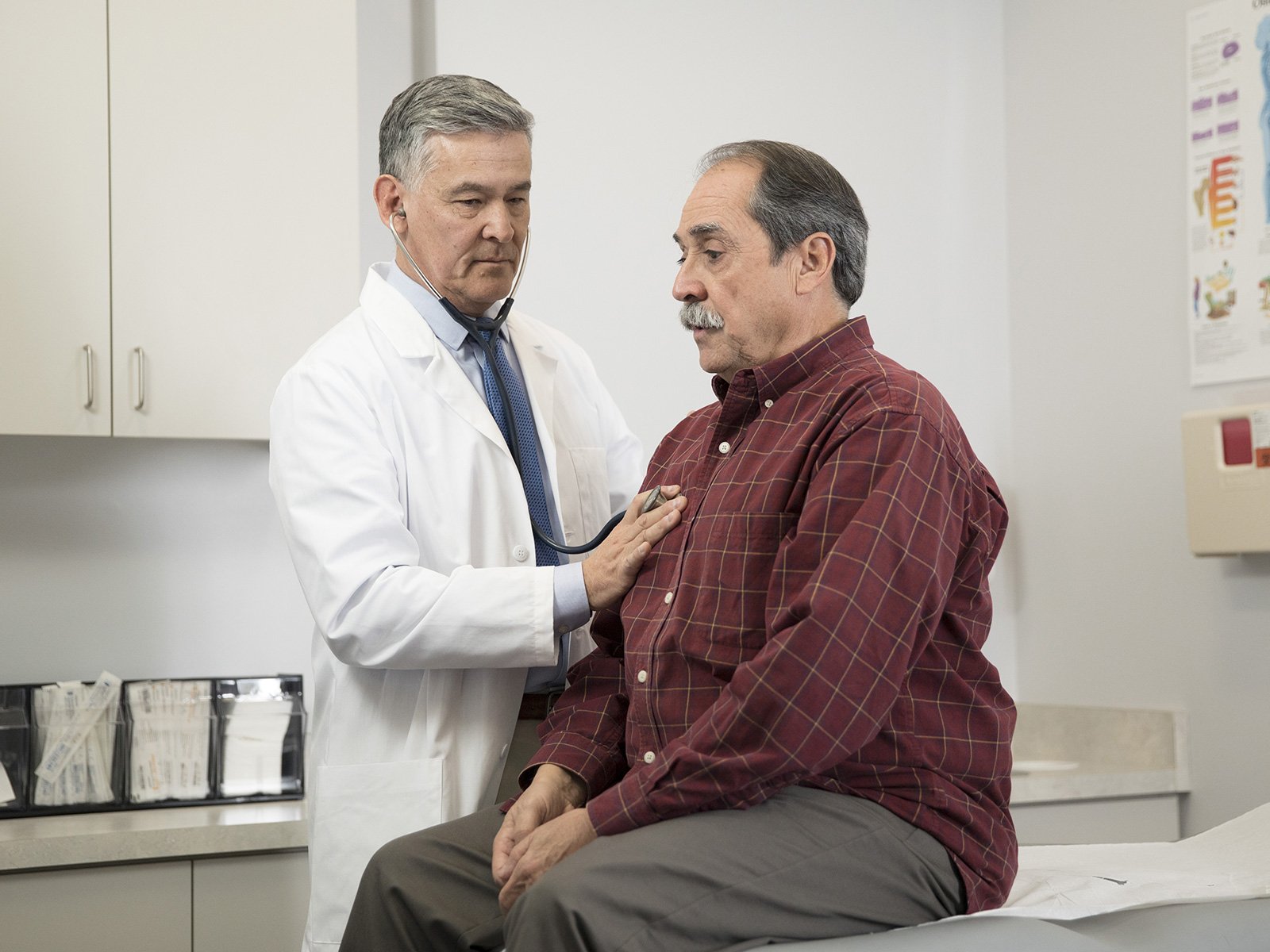©2024 Humana
Breathe easier

If you or someone you care for has chronic obstructive pulmonary disease (COPD), you already know that living with this condition can be a challenge. Here are some ways to help you understand and better manage COPD and its symptoms.
What is COPD?
COPD is a lung disease that results in restricted airflow, making it hard to breathe. This condition keeps the lungs from doing their job of bringing oxygen into the body and getting rid of waste gases. It can get worse over time.1
While an estimated 15 million Americans suffer from COPD—the third leading cause of death in the U.S.—several additional millions likely have COPD and don’t even know it. With early diagnosis and treatment, people with COPD can improve their quality of life.2
What causes COPD?
Cigarette smoke is, by far, the most common cause of COPD. Other causes are long-term exposure to lung irritants like secondhand smoke, air pollution and chemical fumes.3 Symptoms usually appear in people who are 40 and up, although they can begin earlier due to certain genetic conditions
COPD symptoms
Symptoms of COPD grow slowly over the years. Watch for:
- Frequent or long-lasting coughs (with or without mucus)
- Shortness of breath (worse with activity)
- Wheezing
- Chest tightness
If you or someone you love has these symptoms, see a doctor.
Keep COPD under control
COPD can’t be cured, but it can be managed. There is a lot that can be done to treat symptoms and improve quality of life—so that COPD doesn’t keep you or your loved one from enjoying your favorite activities.
Ways to help manage COPD include:
- Stop smoking: It doesn’t matter how long you or your loved one has smoked or your age—it’s never too late to quit.
- Take medicines as directed by your doctor: Bronchodilators are usually taken by inhaler and make breathing easier by relaxing muscles in airways, and inhaled steroids help reduce inflammation during COPD “flare-ups.” As COPD progresses, the oxygen level in the blood may drop. Oxygen therapy may then be needed to make sure there is enough in the blood to keep muscles and tissues working their best.
Ask your doctor about medications and lung exercises that can help you or your loved one suffering with COPD.
How pulmonary rehab can help
Pulmonary rehabilitation, available in the outpatient setting, can help manage COPD-related symptoms. It combines education, exercise and support to help you or your loved one suffering from COPD lead a more active life, reduce “flare-ups,” improve quality of life and stay out of the doctor’s office or hospital.
Pulmonary rehab does not reverse the damage to lungs from COPD but helps you or your loved one perform daily tasks—such as walking, dressing and other chores—more easily. A team of health professionals works to determine a treatment plan that fits in with your or your loved one’s short- and long-term goals.
Pulmonary rehab sessions offer:
Although pulmonary rehab can improve your or your loved one’s daily life, it does not reverse effects that COPD has had on the lungs or other organs. While it does not cure COPD, over time, it helps you or your loved one train the mind, muscles and heart to get the most out of damaged lungs.
To find out if you or your loved one might benefit from pulmonary rehab,
Sources
- “What is COPD?”, Centers for Disease Control and Prevention, last accessed Apr. 22, 2022,
http://www.cdc.gov/copd/ . - “More than 16 million Americans have chronic obstructive pulmonary disease. Millions more have it and don’t know it.”, National Heart, Lung, and Blood Institute, last accessed Apr. 22, 2022,
https://www.nhlbi.nih.gov/health-topics/education-and-awareness/copd-learn-more-breathe-better/ . - “COPD”, National Heart, Lung, and Blood Institute, last accessed Apr. 22, 2022
https://www.nhlbi.nih.gov/health-topics/copd .